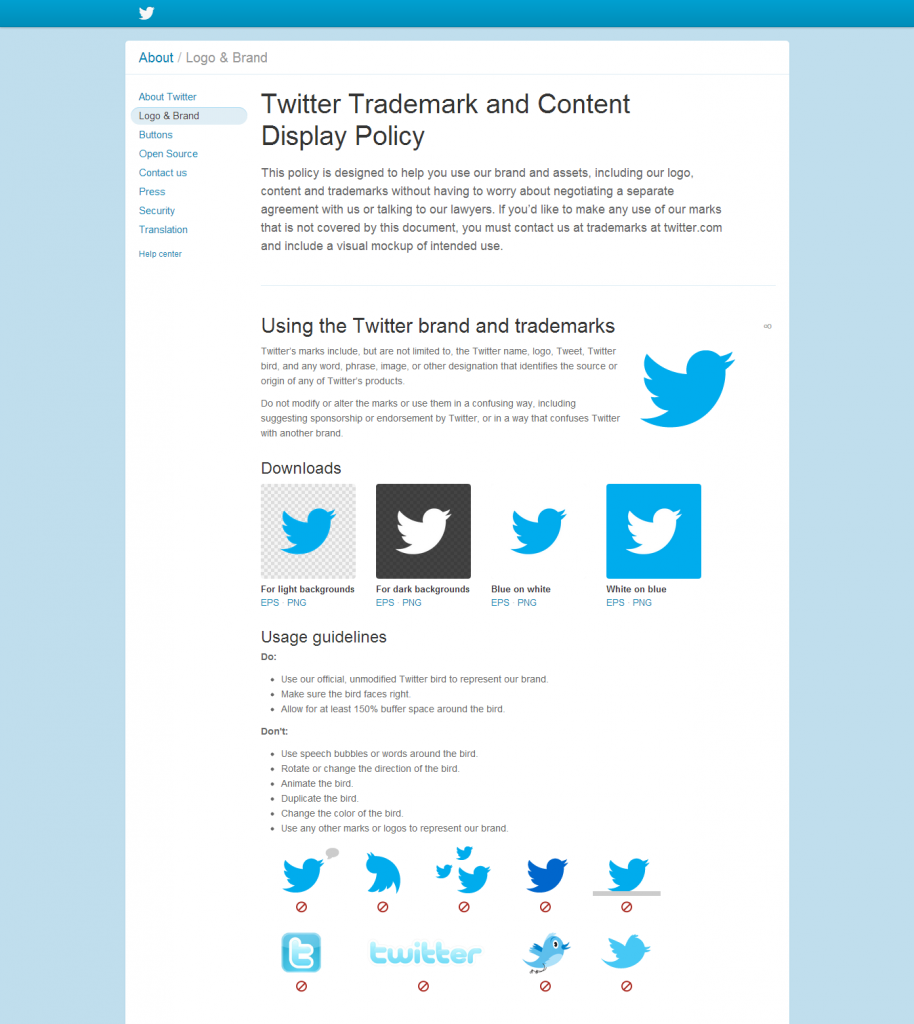Getting people to remember your brand and associate it with quality is a goal that should be at the top of your marketing strategy. The strength of your brand offline, more often than not, determines the success of your business, and the same is true for online marketing. Effective branding sends a strong trust signal to Google and other search engines, which in turn gives you the placement and visibility you need to reach and move a wider potential market.
On-Page Branding Optimization
Your website is your company’s online representation; therefore, proper branding on your website is required. Keep in mind the following SEO basics on branding your site:
- Keep your brand naming convention consistent. For example, if your homepage says your brand is SEO Reseller, do not use other naming conventions like SEOReseller, SEOreseller, or SEOReseller.com.
- Include your brand name in the title, metadata, and on-page copy.
- Use your brand as a keyword by adding it to your main targeted search terms and creating long-tail branded keywords.
- Observe branding consistency in your design, whether for your website, social media profiles, or other types of landing pages. Use the same color palette, establish and use the official logos to use for your profiles. Create a logo usage guideline for your company employees and for third-party users to set the ground rules on proper branding using your logo.
Building Brand Signals
After branding your website, you’ll need to build on a variety of brand signals. These include, but are not limited to:
Social Proof
Followers, likes, shares, updates and other forms of interaction on social media affect the way your target audience views your brand. Building social proof allows your brand to be seen as a relatable and reachable trusted entity – the very image you need to build for your clients, particularly if your specialty is a niche market. Plan a content calendar for your social networking profiles and build your audience in major social networks like Facebook, Twitter, Google+, Pinterest and LinkedIn. Integrate these networks into your site by creating and adding social widgets to tie in all your profiles together.
Trust Signals
Bragging rights is something that you need to exercise when marketing your brand, especially in the highly competitive online market. Displaying your achievements, recognitions, and affiliations with known and trusted names on your website sends a signal to your visitors that you are a brand that can be trusted, and that they should learn more about what you have to offer.
Company Feature Profiling
Getting an influencer to profile your company is a great way to promote your brand. This serves as a strong brand signal because you get the nod of someone already respected in the industry. Traditional PR will help you with this because you will need to establish connections with respected publishers and online industry influencers before you can be featured.
Increasing Brand Mentions
Word of mouth is still the easiest way of promoting your brand. In SEO, the equivalent is getting brand mentions from high-authority sites, from your peers, and from your target market. Get your audience talking with the following:
Linkable Assets
Creating linkable assets does two things: helps people associate your brand with industry leadership. It also allows them to share the resources that you have with others. Create a resource center and other linkable assets that you will share free on your site. These assets can vary from infographics and blogs to whitepapers, case studies, and cheat sheets to name a few. This is also a great source of leads – you can gate the downloads to gather your visitors’ contact information and move onto the next step of your funnel marketing: sending newsletters and other free resources.
Branded Keyword Optimization
Distributing keyword-optimized content to third party publishers allows you to rank and defend your placement for branded keywords. This is easily achieved through proper keyword research and analysis, quality content production, and effective content marketing. You can read more about this in my previous blog. Done right, this will also strengthen your link profile and boost you up the SERPs.
Search Reputation Management
Do not get so keen on building brand mentions that you forget to manage what’s being said about your brand online. Proper search reputation management is important in keeping your brand name clean and maintaining the trust of your clients. Dedicate some time in a day to check what’s being said about your brand. You need to be vigilant about addressing negative and defamatory statements because your audience and Google both pull from what’s posted online.
Developing your brand strategy is easier with our help. Contact your account manager today for more tips and assistance, or sign up for free to get started. Keep checking back for more on SEO!



![Ramp Up Your Rankings in 20 Days with These Local SEO Fixes [Infographic]](https://www.seoreseller.com/wp-content/uploads/2016/12/Thumbnail_16-Local-SEO-Fixes-768x263.jpg)
